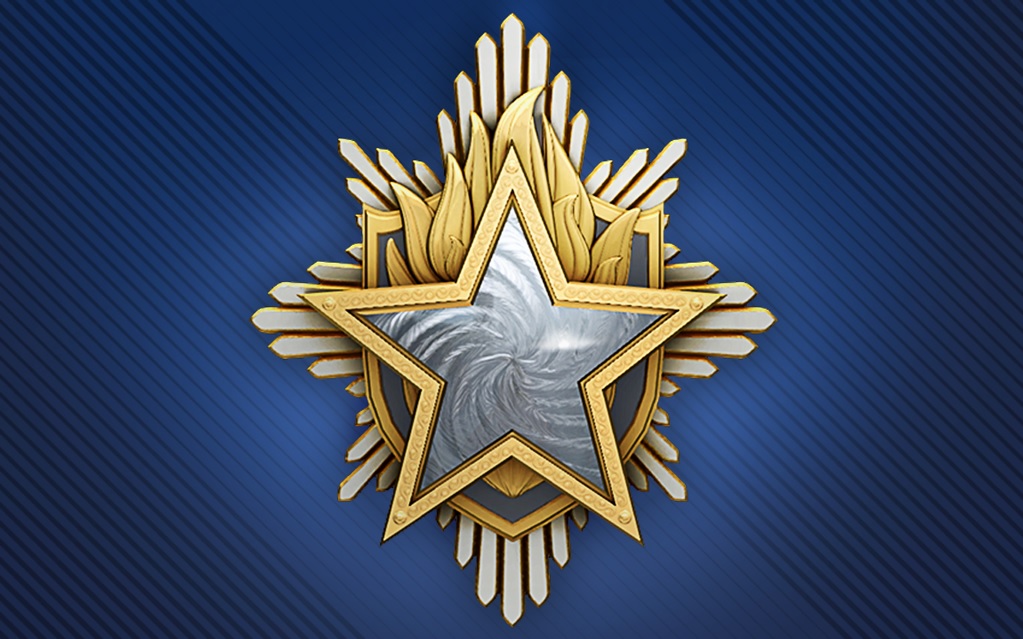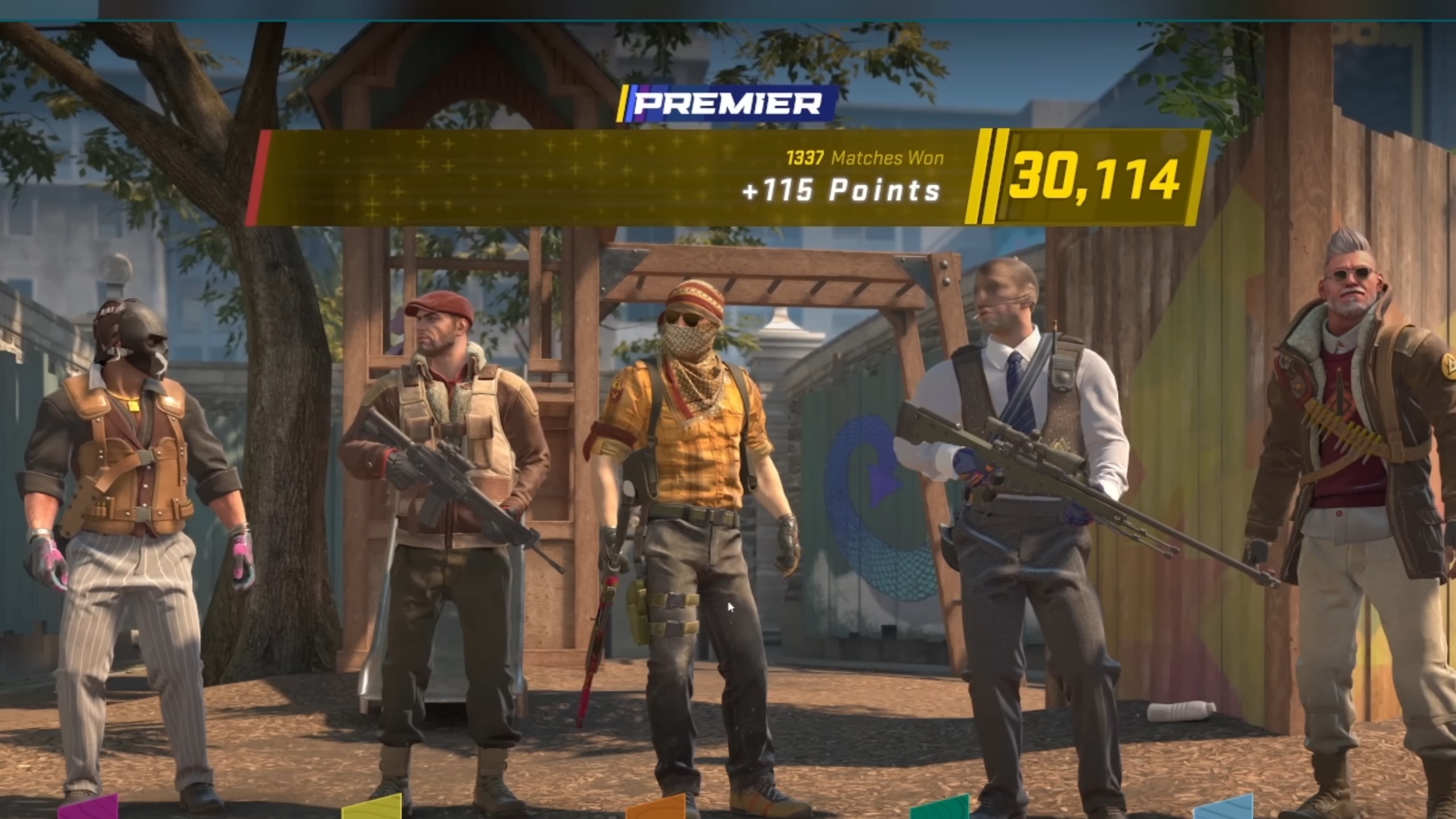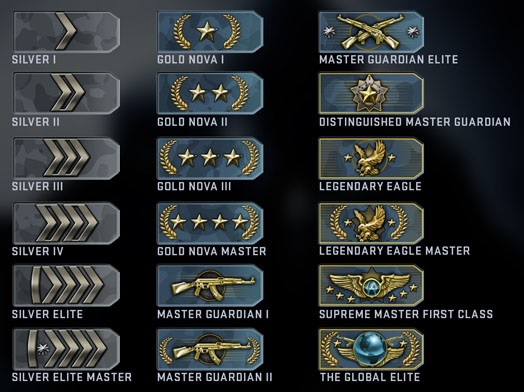CS2 ranks and premier ratings: the new system explained
A breakdown of the competitive and premier modes and how they work.

Counter-Strike 2 has kicked in the door with its release, and now that the entry flashbangs have cleared up, ranked modes are calling to us to accept their challenge. The previous system from CS:GO has been changed up for CS2, and there’s now more than one way to see how you stack up against the competition with the new Premier and Competitive modes. Just like knowing where to flash and how to tell the difference between an eco round or a forced buy—preparation is key to getting the most out of each round.
Thankfully, Valve has added some diversity to the ranked modes in CS2, giving us some choices between a style based on what we know and love from CS:GO, and a newer ranked format called Premier.
CS2 Premier rating explained

With CS2’s newest mode, the mystery behind climbing ranks has been banished. Instead, there’s now transparent progression with an Elo-style rating called your Counter-Strike rating. Each match will show you clearly how many points are on the line before it starts, and you can check your CS2 rating in the leaderboard at any time—it will show up in blue, with your current Rank to the left of it. In this new system, each Rank represents a range of numbers, with the highest Rank being for the select few who top 30,000.
Here’s how the different Premier Ranks break down:
- 4,999 and below - Gray
- 5,000 to 9,000 - Light Blue
- 10,000 to 14,999 - Blue
- 15,000 to 19,999 - Purple
- 20,000 to 24,999 - Fuchsia
- 25,000 to 29,999 - Red
- 30,000 and above - Gold
What impacts CS rating changes in CS2 Premier?
First off, you won’t have your initial placement CS rating at all until you’ve won 10 games in Premier, not just played ten, but won them.
Once your placements are done, you’ll be able to see what your CS rating will change by before each match starts. This means that your individual performance in the match has no impact on your rating change, just whether your team wins or loses in the end.
We also saw in the beta that losing and winning streaks will compound the change to your CS rating. Multiple losses in a row will cost you more and more rating points, and likewise multiple wins will earn you more significant CS rating increases.
The biggest gaming news, reviews and hardware deals
Keep up to date with the most important stories and the best deals, as picked by the PC Gamer team.
How does Premier mode work in CS2?
Premier mode shakes up the formula from CS:GO in that instead of choosing a map, you’ll take turns with the opposition banning maps from the current active map list. At the end of the ban phase, you’ll be left with the map you're playing and the team who banned second will get to pick which side to start.
You’ll also see that Premier brings back a venerable staple of Counter-Strike: the Max Rounds 12 (or MR 12) setting. In MR 12 you can expect to only ever play more than 12 rounds per side in the event of a tie—for a combined maximum of 24 rounds in a full match. If there is a tie, the maximum number of combined rounds can go up to as much as 30 before simply being declared a tie. This setting is designed to keep the match from dragging out, and should make your attempts to climb in CS rating go faster.
CS2 Competitive ranks explained

Competitive mode works very similar to CS:GO on the surface. It even uses the same rank structure—from Silver to Global Elite—as CS:GO, but with one key difference: your rank is for an individual map. For example, you can be ranked Gold Nova 2 on Inferno but that won’t carry over to any other maps, so you won’t be able to flex on Mirage if you don’t have the same success there. At the same time, if you simply hate a particular map, you don’t have to play it. Instead you can focus on whichever ones you’d like, since you only need a minimum of one map selected in order to queue.
To get ranked on a map, you’ll still need to play enough to get ten wins—not just games—on that map. From there, your wins and losses will let you move around in the ranks for that map.
Here’s a breakdown of the Competitive ranks, all of which are carried over from CS:GO:
- Silver 1
- Silver 2
- Silver 3
- Silver 4
- Silver Elite
- Silver Elite Master
- Gold Nova 1
- Gold Nova 2
- Gold Nova 3
- Gold Nova Master
- Master Guardian 1
- Master Guardian 2
- Master Guardian Elite
- Distinguished Master Guardian
- Legendary Eagle
- Legendary Eagle Master
- Supreme Master First Class
- Global Elite

Sarah is a contributor for PC Gamer, formerly of TechRadar Gaming. With five years of experience writing freelance for several publications, she's covered every genre imaginable and probably a few she made up. She has a passion for diversity and the way different genres can be sandboxes for creativity and emergent storytelling, and loves worldbuilding. With thousands of hours in League of Legends, Overwatch, Minecraft, and countless survival, strategy, roguelike, and RPG entries, she still finds time for offline hobbies like tabletop RPGs, wargaming, miniatures painting, and hockey.

